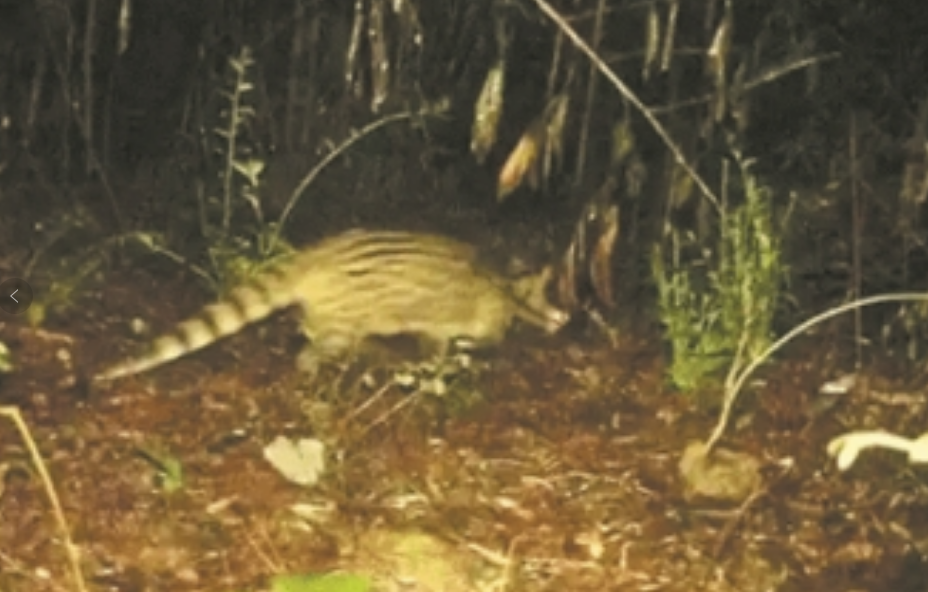Rare Sight: Lesser Oriental Civet Captured on Camera in Longgang, Wenzhou
时间:2024-12-24 15:30:00 来源 : DiscoverWenzhou 作者 : Wang Xiao
In a remarkable discovery, experts from the Nanjing Institute of Environmental Sciences under the Ministry of Ecology and Environment have recorded footage of the lesser oriental civet (Viverricula indica), a critically endangered species, during a terrestrial wildlife resource survey in Longgang, Wenzhou. The footage, captured by an infrared camera placed in Baiyekeng Mountain in Bagao, marks the first documented sighting of this elusive creature in the wild within Longgang.

lesser oriental civet in Longgang. Photograph provided by Longgang converged media
The lesser oriental civet, also known as the seven-banded civet or musk civet, is a carnivorous mammal belonging to the Viverridae family. It measures approximately 48-58 cm in body length with a tail length of 33-41 cm, and weighs between 2-4 kg. Its fur is grayish-yellow or light brown, with brown stripes across its back, black spots on its sides, and black bands around its neck. The tail features alternating black and brown rings. This nocturnal animal prefers habitats such as forests, shrublands, hills, and grasslands, but can also be found near agricultural areas and villages. It feeds primarily on rodents, squirrels, small birds, lizards, insects, larvae, and plant fruits, occasionally preying on domestic poultry.
Historically, the lesser oriental civet was widely distributed throughout the mountainous regions of Zhejiang Province. However, due to overexploitation and habitat fragmentation, its population has dwindled significantly. From the publication of"Zhejiang Animal Records" in 1989 until 2019, there were no confirmed sightings of the species in Zhejiang. It wasn't until September 2020 that the first image of a lesser oriental civet in Zhejiang was captured by an infrared camera in the Wuyanling Nature Reserve. Since then, other areas like Nanyan Town in Pingyang County have also recorded its presence through infrared monitoring cameras.
In Zhejiang, the lesser oriental civet is often referred to as a"divine beast." Not only is it a Class I nationally protected wild animal, but it is also a source of civetone, a precious ingredient used in traditional Chinese medicine and perfumery. Despite its timid nature, when threatened, the lesser oriental civet can release a foul-smelling secretion from its anal glands similar to a skunk, which buys it time to escape. This secretion, known as civet musk, is highly valued alongside beaver castoreum, musk, and ambergris as one of the four major animal-derived fragrances.
This latest sighting underscores the importance of continued conservation efforts and ecological restoration in protecting endangered species and their habitats. The rediscovery of the lesser oriental civet in Longgang offers hope for the recovery of its population and highlights the region's rich biodiversity.(Wang Xiao)


